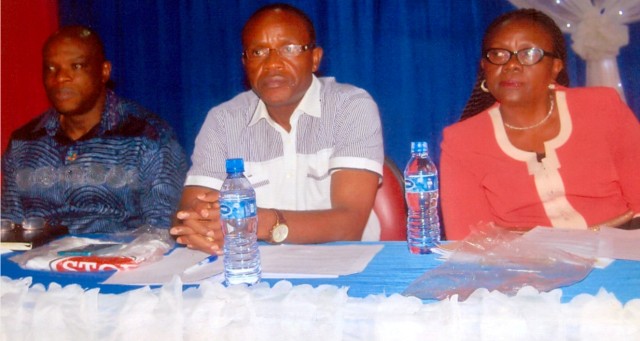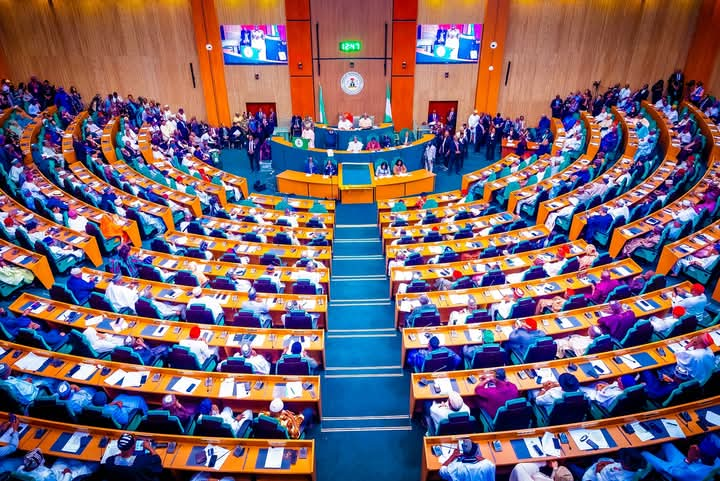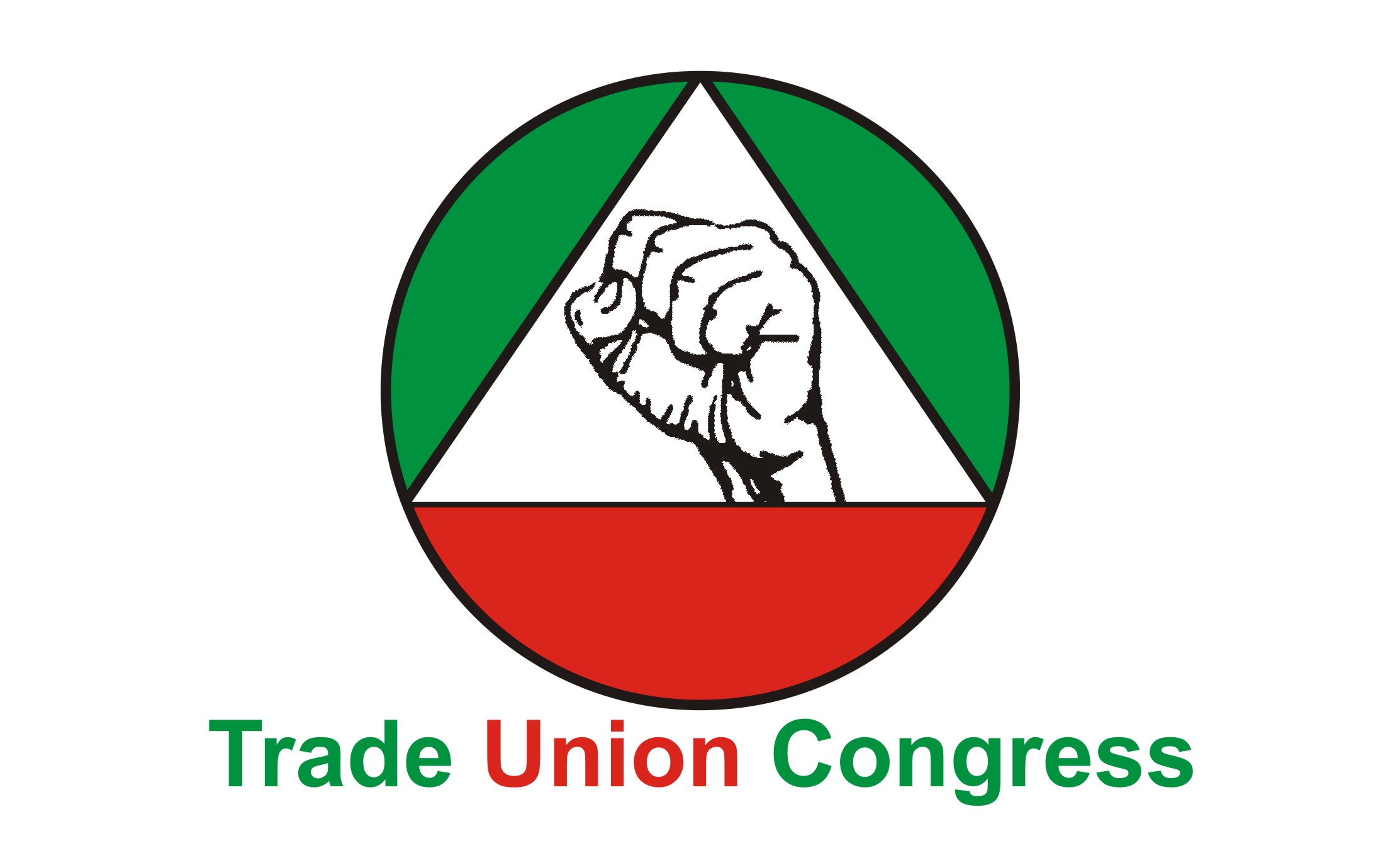Featured
B’Haram Attack: Soldiers Missing, 13 Others Wounded

An unspecified number of Nigerian soldiers went missing after an attack by Boko Haram in Gashigar, a northern Borno State community that borders Niger Republic, the Army has said.
The Army spokesperson, Sani Usman, said the soldiers were attacked at their position at about 5:30 p.m. on Monday.
Mr. Usman, a colonel, described the attackers as “escaping remnants of Boko Haram.”
“The troops did their best to defend the location in vain. In the process, 13 soldiers sustained injuries while some are still missing in action,” he said.
The spokesperson said the troops suffered a “temporary setback” and had to withdraw from the location.
“However, the wounded soldiers have been evacuated and receiving treatment, while efforts are ongoing in search of those missing and clear the Boko Haram terrorists at the general area,” he said.
The Boko Haram insurgency in Northern Nigeria has caused the death of over 20,000 people and displacement of millions of others.
The group recently engaged in negotiation with the Federal Government which led to the release of 21 of the over 200 girls kidnapped from Chibok in Borno State in April 2014.
Despite the negotiation and despite losing initially claimed territory to the Nigerian forces, the group still carries out attacks like that of Monday.
Meanwhile, a military tribunal sitting in Maiduguri, Borno State, yesterday sentenced a Staff Sergeant in the Nigeria Army to three years behind bars for causing permanent disability of a ten-year-old boy.
The convict, Umar Sule, who has served 26 years in the army, was also stripped of all ranks and demoted to a private by the tribunal presided over by Olusegun Adeniyi, a brigadier-general.
Mr. Sule, according to the charge sheet presented to the military court martial, inflicted a permanent injury on Muhammed Sale by tying him up for stealing his N2000.
The tall and heavily built demoted officer admitted before the court martial that he tied the two hands of the boy to a pole for over seven hours.
Due to the torture, Sale’s two wrists suffered gangrene. The condition is a premature death of cell caused by lack of blood flow.
Doctors later had Sale’s jaundiced right hand amputated. The other, though paralyzed, was partially salvaged by grafting of skin from the victim’s lap to patch it up.
The National Human Rights Commission took up the matter by petitioning the Nigerian Army on the conduct of the soldier.
The Army responded by arraigning Mr. Sule before the court martial, which was set up on August 11 to try miscellaneous offences under the military’s Operation Lafiya Dole.
The court found the accused soldier guilty of two charges of “unlawful assault, and disobedience of standing order of the Nigerian Armed Forces by entertaining a minor at his guard location”.
Delivering the ruling, President of the court martial, Mr. Adeniyi, said, “having found you guilty of the charges against you, and having listened to the prosecution counsel urging this court to treat you as a first offender, and this convict’s touching plea to litigation, we have also looked at various punishments provided by both Section 104, sub-Section 2B of Armed Forces Act CAP A20 Laws of the Federation 2004, as well as Section 119 of Armed Forces Act CAPA20 Laws of the Federation 2004.
“This court also considered the need to ensure discipline in the system. This court therefore sentence you as follows; on count one, three years imprisonment; on count two, reduced to private. This sentence is however subject to confirmation by the confirming authority as provided by Section 141 Sub-section 2 and Section 152, Sub-section 1A of the Armed Forces Act, CAP A20 Laws of the Federal Republic of Nigeria 2004”.
The representative of the NHRC at the trial commended the Nigeria Army for ensuring that the victim got justice via a transparent trial.
She said the NHRC office would help the victim “who now has to live with permanent disability for the rest of his life” to pursue compensation through the civil court.
“We commend the Nigeria Army for a job well done, because we brought the complaint to them in March, 2016, and by October, they are done with the case.
“In respect of getting compensation for the victim, we will communicate with our head office which has the powers to take that decision; but we are going to send our recommendation to ensure that this is achieved”.
She also commended the General Officer Commanding of 7 Division, Nigeria Army for offering to sponsor the boy’s education.
The father of the boy, Usman Muhammed, narrated to journalists at the venue of the tribunal the events that led to his son’s brutalization.
“My son, who used to go to the soldiers’ base for errands, was invited on that fateful day by Sergeant Sule who said his N2000 was stolen. My son confessed to him that he was the one that took it, and that he should forgive him”.
“Sergeant Sule asked my son to wait for him to return from the Friday mosque. When he returned from the mosque, he tied up his two hands to an electric pole, and left him there for over seven hours. He tied his hands with a rubber bound and continued to flog him for that long period.
“When he finally left him after hours of plea, the two hands had been damaged. When we took him to the hospital, we were told that the right hand had gone bad and had to be amputated. The left hand too was almost beyond repair, they had to peel off skin from his leg to patch it up. As it is now, the boy has lost two hands due to the action of a soldier”, said Mr Muhammed.
He said he was pleased with the judgment of the court martial, even as he worried that his son still needed support now that he would have to live the rest of his life with no hands.
Featured
Reps Propose Creation of 31 New States

The House of Representatives Committee on Constitution Review has proposed the creation of 31 new states in the country.
If the proposal scales through, the Nigerian state will be made up of 67 sub-national governments.
The proposal for new states was contained in a letter read during yesterday’s plenary session by the Deputy Speaker, Benjamin Kalu, who presided over the session in the absence of the Speaker, Mr Tajudeen Abbas.
The committee chaired by Kalu proposed six new states for North Central, four in the North East, five in the North West, five in the South East, four in the South-South and seven in the South West.
The letter read in part, “The committee proposes the creation of 31 new states. As amended, this section outlines specific requirements that must be fulfilled to initiate the process of state creation, which include the following:
New state and boundaries
“An act of the National Assembly for the purpose of creating a new state shall only be passed if it requires support by at least the third majority of members.
“The House of Representatives, the House of Assembly in respect of the area, and the Local Government Council in respect of the area are received by the National Assembly.
“Local government advocates for the creation of additional local government areas are only reminded that Section 8 of the Constitution of the Federal Republic of Nigeria, as amended, applies to this process.
“Specifically, in accordance with Section 8 (3) of the Constitution, the outcome of the votes of the State Houses of Assembly in the referendum must be forwarded to the National Assembly for fulfillment of state demands.
“Proposals shall be resubmitted in strict adherence to the stipulations. Submit three hard copies of the full proposal of the memoranda to the Secretariat of the Committee at Room H331, House of Representatives, White House, National Assembly Complex, and Abuja.
“Sub-copies must also be sent electronically to the Committee’s email address at info.hccr.gov.nj. For further information or contact, please contact the Committee Clerk at 08069-232381.
“The committee remains committed to supporting the implementing efforts that align with the Constitutional provisions and would only consider proposals that comply with the stipulated guidelines. This is coming from the Clerk of the Committee on Constitutional Review.”
The proposed new states are Okun, Okura and Confluence states from Kogi; Benue Ala and Apa states from Benue; FCT State; Amana State from Adamawa; Katagum from Bauchi State; Savannah State from Borno, and Muri State from Taraba.
Others are New Kaduna and Gujarat from Kaduna State; Tiga and Ari from Kano; Kainji from Kebbi State; Etiti and Orashi as the 6th state in the South East; Adada from Enugu, Orlu and Aba from the South East.
Also included are Ogoja from Cross River State; Warri from Delta; Ori and Obolo from Rivers; Torumbe from Ondo; Ibadan from Oyo; Lagoon from Lagos; Ijebu from Ogun State, as well as Oke Ogun/Ijesha from Oyo/Ogun/Osun States.
Featured
TUC Opposes FG’s Proposed Toll Gate On Federal Roads, Rejects Electricity Tariff Hike

The Trade Union Congress of Nigeria, (TUC), yesterday, opposed the plans by the Federal Government to toll selected federal roads in the country, as a means of revenue generation.
The TUC also kicked against any attempt to increase telecom tariff, saying it will compound the present economic hardship Nigerians are going through.
President of TUC, Comrade Festus Osifo, while presiding over the 1st Quarter 2025 National Administrative Council (NAC) of the Union in Abuja, yesterday, condemned the proposed reintroduction of toll gates on some federal highways without first of all ensuring that the roads are in good condition.
Osifo, who blamed the hardship in the country as a result of the government policies like the flotation of the naira, wondered why the Federal Government should initiate policies bothering on the citizens without due consultations with relevant stakeholders.
He said its is annoying that most of the roads which are unpaved, dilapidated, and riddled with potholes should be open for collecting tolls.
A communique issued at the end of the meeting partly read: “NAC deliberated on the proposed introduction of toll gates on selected federal roads and strongly condemned it in its entirely. While we acknowledge that tolling is a globally recognized method of generating revenue for road maintenance, it is unacceptable to impose tolls on roads that are unpaved, dilapidated, and riddled with potholes.
“The NAC views this as an insult to Nigerians, who are being asked to pay tolls on roads that are in total disrepair. Our highways are death traps unsafe, abandoned, and filled with potholes. Rather than fulfilling its responsibility to fix and maintain these roads, the government is resorting to shameless extortion.
“The Congress, therefore, demands that all roads earmarked for tolling must first be fixed, properly tarred, and repaired to international standards before any discussion on tolling can be entertained”.
Although the Federal Government recently debunked plans to increase electricity tariff by 65 percent, TUC said it was alarming that the government even considered the hike in the first instance.
Osifo lamented that the previous increment already inflicted severe hardship on citizens.
He said, “This proposed increase is not only ill-timed but also a deliberate act of economic oppression against Nigerians, who are already struggling under unbearable economic conditions.
“The improved service quality promised during the last tariff hike, particularly for consumers under the so-called “Band A” category, has not been realized. Most consumers, regardless of their tariff band, continue to live in perpetual darkness”.
TUC observed that the root cause of escalating prices and galloping inflation was the devaluation of the Naira.
Going down memory lane, Osifo said in February 2024, the TUC addressed a world press conference, where it clearly stated that the excessive devaluation of the naira was the primary cause of rising inflation and the continuous increase in the prices of goods and services.
He said Congress also warned that this trend would worsen inflation in 2024, impacting virtually every sector of the economy and severely affecting the social and economic well-being of Nigerian workers and the masses if the solutions it canvassed were not adopted.
The TUC President said 12 months later, the Congress position remained unchanged, alleging that the symptoms of the root cause have manifested clearly.
According to him: “These include the skyrocketing prices of essential goods, the escalating costs of social services, the proposed hike in telecom tariffs, the increase in electricity tariffs (with plans for further increments), the rising prices of petroleum products amongst others.
“The TUC remains focused on addressing the root cause of these economic challenges rather than merely reacting to the manifested symptoms. To this end, the TUC demands a better foreign exchange (FX) management regime from the Central Bank of Nigeria (CBN) as the naira is currently undervalued, as confirmed by both local and international experts.”
He warned that if the policies were not reviewed to favour the citizens, the TUC may be compelled to mobilise for mass protest.
“The NAC, on behalf of the Congress, strongly advises the government to refrain from introducing policies that would further exacerbate the current economic hardship faced by hardworking Nigerians.
“If the administration insists on implementing these policies, the TUC will have no choice but to mobilize the working class, civil society, and the oppressed masses for a nationwide action. This level of exploitation is unacceptable. A stitch in time saves nine,” he warned.
Featured
Africa Must Stop Depending On Foreign Blueprints -Tinubu

President Bola Tinubu has charged African leaders to stop clinging to their old habit of depending on foreign plans, saying the continent is in dire need of leaders who wield policy as a surgical blade instead of a slogan.
Tinubu lamented what he described as “the tragedy of our time” whereby African leaders do not only confine themselves to foreign blueprints but refused to emancipate themselves from client-state mentalities and governance by hashtag activism.
The President made these remarks in Abuja, yesterday, during the Dr. Kayode Fayemi commemorative symposium and launch of the Amandla Institute for Policy and Leadership Advancement, with the theme “Renewing the Pan-African Ideal for the Changing Times: The Policy and Leadership Challenges and Opportunities.”
The symposium was organised to commemorate the 60th birthday of the former Governor of Ekiti State, Dr Kayode Fayemi.
Represented at the event by the Vice-President, Senator Kashim Shettima, the President said, “Whatever our differences across the continent, one fact that can’t be eroded by our infighting is that we are in the age of machines, and we can’t fight our development dilemma with spears and arrows while the rest of the world is fighting the same battle with missiles and tanks. The world is not waiting for Africa to catch up.
“While we parse political rivalries, others parse datasets. While we litigate history, others engineer futures. The train of progress accelerates, yet too many of our leaders cling to old carriages. These are our client-state mentalities, our dependency on foreign blueprints, and our governance by hashtag activism. This is the tragedy of our time.
“The founding of Amandla Institute emerges as an antidote to this paralysis. We are here not only to generate more ideas but to create executors. We need leaders who wield policy as a scalpel, not a slogan. We need visionaries who see AI as a collaborator, not a competitor. We need a generation of Africans who recognise that Pan-Africanism, renewed for this age, must be rooted in actionable sovereignty.”
Tinubu pointed out that it would be wishful thinking to hope that the renaissance of Africa will happen as a gift, maintaining that it must be built.
He regretted that for too long, leaders in Africa have outsourced their thinking, relying on institutions and ideologies that treat countries on the continent “as consumers, not creators,” just as he insisted that the youth must be empowered to innovate in tech hubs across the continent.
“But the post-idea world dissolves excuses. With the democratisation of knowledge, we must empower our youth to innovate in tech hubs across the continent, from Cairo, down through Nairobi, to Lagos, building unicorns without the permission of any gatekeepers. What they lack is not ideas but ecosystems—systems where policy, funding, and political will converge to scale their genius,” he noted.
The Nigerian leader further urged African leaders to “evolve from custodians of power to architects of platforms,” adding that their “imagination of Africa must be one where every government ministry houses.
“AI strategists, where continental trade policies are drafted by homegrown think tanks like Amandla Institute, not foreign consultants, and where “Made in Africa” signifies not raw materials but algorithms, green tech, and cultural capital.”
-

 Sports3 days ago
Sports3 days agoLagos To Welcome International Athletes For Lagos City Marathon
-

 Oil & Energy3 days ago
Oil & Energy3 days agoFG, MEMAN Chart Ways To Safe Petroleum Products Delivery
-

 Niger Delta3 days ago
Niger Delta3 days agoNavy Arrests Nine Oil Thieves In A’Ibom
-

 News3 days ago
News3 days ago27 Lawmakers: NCSU Alerts On Wike’s Plot To Pervert Justice
-

 News3 days ago
News3 days agoSERAP Sues Tinubu Over Unexecuted N167bn Projects
-

 Politics3 days ago
Politics3 days agoPDP Stalwart Canvases Support For PHALGA Mayor
-
Education3 days ago
LG Boss Inaugurates 11-Man Scholarship Board
-

 Sports3 days ago
Sports3 days agoDikko Pledges Support For NDF

